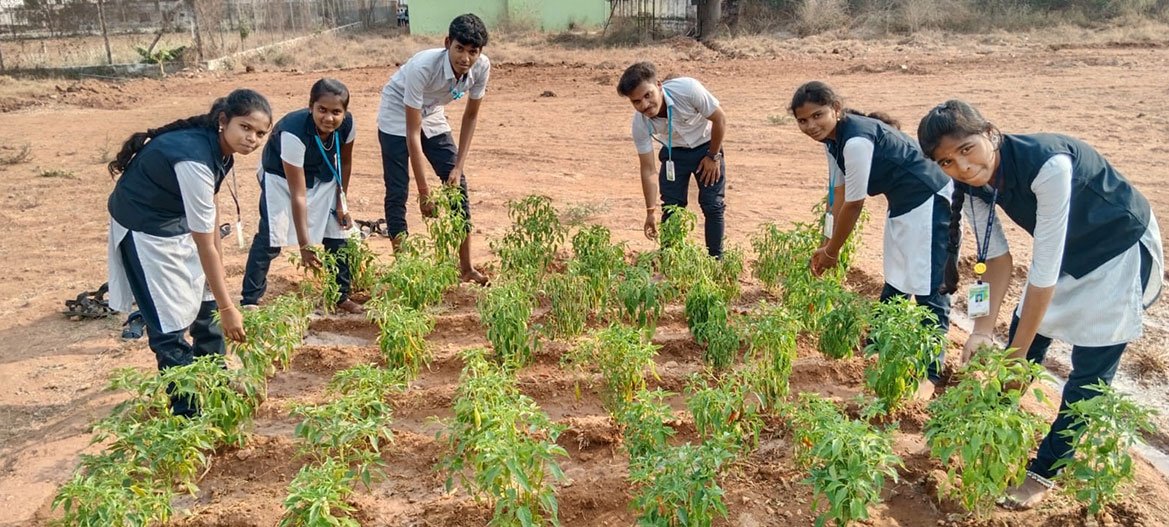
Course Details:
Introduction to Agriculture:
Overview of the agricultural industry, its importance, and historical perspectives.
Crop Science:
Study of various crops, their cultivation, and management practices.
Soil Science:
Understanding soil composition, fertility, and management techniques.
Agricultural Machinery and Equipment:
Introduction to modern farming machinery, equipment, and their operation.
Irrigation and Water Management:
Techniques for efficient water use in agriculture, including irrigation systems.
Plant Protection:
Study of pests, diseases, and methods for plant protection.
Agricultural Economics:
Basics of agricultural economics, market trends, and financial management.
Farm Management:
Principles of farm planning, organization, and decision-making.
Animal Husbandry:
Introduction to livestock management, breeding, and health practices.
Horticulture:
Study of fruits, vegetables, flowers, and ornamental plants.
Agroforestry:
Integrating trees and shrubs into agricultural systems for sustainable practices.
Organic Farming:
Principles and practices of organic farming for sustainable agriculture.
Agricultural Extension:
Communicating agricultural knowledge and practices to farmers.
Research Methodology:
Introduction to research methods used in agricultural studies.
Practical Training:
Hands-on training in agricultural practices, machinery operation, and farm management.
Project Work:
Undertaking a project to apply learned concepts and develop problem-solving skills.
Career Opportunities:
Agricultural Technician:
Implementing and managing agricultural practices on farms.
Farm Manager:
Overseeing the day-to-day operations and management of a farm.
Crop Consultant:
Advising farmers on crop selection, cultivation practices, and pest management.
Soil Conservationist:
Developing and implementing strategies for sustainable soil management.
Irrigation Specialist:
Designing and managing irrigation systems for efficient water use.
Livestock Manager:
Managing the care, breeding, and health of livestock on a farm.
Horticulturist:
Specializing in the cultivation of fruits, vegetables, and ornamental plants.
Agricultural Economist:
Analyzing market trends, pricing, and economic factors in agriculture.
Agricultural Extension Officer:
Providing farmers with information on modern agricultural practices.
Organic Farming Consultant:
Advising on and implementing organic farming practices.
Research Assistant:
Assisting in agricultural research projects.
Agribusiness Manager:
Managing businesses related to agriculture, including marketing and sales.
Food Processing Technician:
Working in the processing and preservation of agricultural products.
Greenhouse Manager:
Managing greenhouse facilities for controlled crop cultivation.
Rural Development Officer:
Working on development projects in rural areas related to agriculture.
Seed Quality Assurance Officer:
Ensuring the quality and standards of agricultural seeds.
Agricultural Educator:
Teaching and educating others about agricultural practices.
A Diploma in Agricultural Technology opens up diverse career opportunities in the agriculture sector, allowing graduates to contribute to sustainable and modern farming practices. The skills gained can be applied in various roles related to crop cultivation, animal husbandry, farm management, and agricultural research.